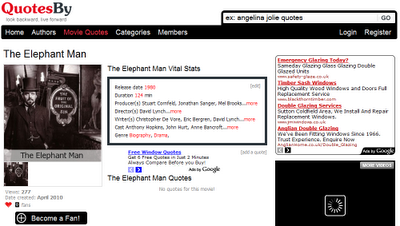As I'm from a sales background I know all about associated
selling [yes you youngsters, Amazon did not invent the concept with " people
who bought this book also bought … "] – but in my book and seminars I
emphasise the point that for this to be effective online, experienced sales staff
must be involved in the choice of 'associated' products [it's all part of my
website 'dream team' issue].
So when I was looking for a new pair of Levi 's, I was a surprised at Debenhams' recommendations
for associated sales for the jeans I was looking at.
You will note that the model showing off the jeans is
wearing a pair of baseball boots – and yet the recommended shoes seem to be two
pairs of 'dress' shoes and one that might be described as 'casual'. A quick
scan of the other Levi's on offer revealed that the vast majority of models are
wearing 'trainer'-type shoes with only one in 'dress' shoes. I should disclose that
I am firmly in the no-dress-shoes-with-jeans camp, so that might influence me
here.
More objectively – I have to assume the Levi 's are modelled in what is considered to be the
most appropriate footwear for the jeans? So why the three shoes shown here?
Could it be because they are on offer and that 'show on-promotion shoes' the 'default'
setting for all types of trousers at this time of the year? OK, so I could live
with that for one or two recommendations – but why not include the actual shoes
shown in the jeans picture? After all, if I were in a store and talking to a
sales person would they try and push associated sales that are not really
suitable for the primary product? They might … but only if they are no good at
their job and if they don't want to see you back in the shop again.
On the plus side – well, partial plus is – that in the
product description of the jeans the height of the model is given along with
the size of jeans being worn, so giving buyers a better idea of the size and
fit of the products. Why 'partial' plus? Not all jeans' descriptions included
this information – including the 501s I was looking at.


















































